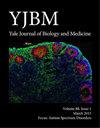Pandemic panic and the culture of complacency
IF 2.5
3区 工程技术
Q2 BIOLOGY
引用次数: 0
Abstract
The many legacies bequeathed to us by the COVID-19 pandemic have embraced novel approaches to vaccine development, a greater awareness of the principles of hygiene among the general public, the need for governments to take a proactive stance when faced with unfamiliar pathologies, and the role of specialist medical and scientific advisers. However, many of the claimed protocols are medieval in nature and have little scientific evidence to support their introduction. Similarly, we have failed to grasp the importance of the anti-vaccination campaigns, which are always founded on ignorance or willfulness, but on previous examples of duplicitous behavior by those in authority, coupled with our poor understanding of the way virus variants function, have engendered a sense that many of the precautions taken may have been unnecessary (Ford, 2020a). In consequence, I fear that future threats from hemolytic viruses of high transmissibility may be met with complacency. Improved public education, and greater academic transparency concerning the nature of risk, will be necessary if a future pandemic is to be effectively controlled.流行病恐慌和自满文化
2019冠状病毒病大流行给我们留下了许多遗产,包括开发疫苗的新方法、提高公众对卫生原则的认识、政府在面对不熟悉的疾病时采取积极态度的必要性,以及专业医学和科学顾问的作用。然而,许多声称的协议本质上是中世纪的,几乎没有科学证据支持它们的引入。同样,我们也没有意识到反疫苗运动的重要性,这些运动总是建立在无知或任性的基础上,而是建立在之前权威人士的两重性行为的例子上,再加上我们对病毒变异功能的理解不足,导致了一种感觉,即许多预防措施可能是不必要的(Ford, 2020a)。因此,我担心未来来自高传播性溶血病毒的威胁可能会自满。如果要有效控制未来的大流行,就必须改进公共教育,提高关于风险性质的学术透明度。
本文章由计算机程序翻译,如有差异,请以英文原文为准。
求助全文
约1分钟内获得全文
求助全文
来源期刊

Yale Journal of Biology and Medicine
Biochemistry, Genetics and Molecular Biology-General Biochemistry,Genetics and Molecular Biology
CiteScore
5.00
自引率
0.00%
发文量
41
期刊介绍:
The Yale Journal of Biology and Medicine (YJBM) is a graduate and medical student-run, peer-reviewed, open-access journal dedicated to the publication of original research articles, scientific reviews, articles on medical history, personal perspectives on medicine, policy analyses, case reports, and symposia related to biomedical matters. YJBM is published quarterly and aims to publish articles of interest to both physicians and scientists. YJBM is and has been an internationally distributed journal with a long history of landmark articles. Our contributors feature a notable list of philosophers, statesmen, scientists, and physicians, including Ernst Cassirer, Harvey Cushing, Rene Dubos, Edward Kennedy, Donald Seldin, and Jack Strominger. Our Editorial Board consists of students and faculty members from Yale School of Medicine and Yale University Graduate School of Arts & Sciences. All manuscripts submitted to YJBM are first evaluated on the basis of scientific quality, originality, appropriateness, contribution to the field, and style. Suitable manuscripts are then subject to rigorous, fair, and rapid peer review.
 求助内容:
求助内容: 应助结果提醒方式:
应助结果提醒方式:


